Erica Vetsch's Blog, page 56
July 22, 2021
Give Me Blue Plate, or Give Me Nothing at All
by Pam Hillman
The other day, I bought these off-brand BBQ potato chips. (Yes, this is writing related.) The chips were pretty tasty, and as someone who hasn’t eaten too many chips the last few years, I probably enjoyed them more than they deserved. The description on the bag stated “Zesty BBQ” and the flavor certainly lived up to that. Too much, actually. They were a bit too zesty to enjoy. Basically, I tasted bbq and not much of the potato chips.
As I consumed the last of the zesty bbq flavor, I was thinking about this blog post. (Let’s just say that I needed the chips for inspiration. Yeah, we’ll go with that.) I tend to create analogies out of thin air, or in this case, out of potato chips. But it occurred to me that just like we all have foods we like or dislike, or even really have no preference one way or another because we’ve never tried them, it’s the same way as writers and even as readers.
Before we talk about how these two things are related, I’d like to share another food-related incident. I’m not a mayonnaise snob, but I was raised on Blue Plate mayonnaise. I’ll eat a different brand if I’m at someone’s house, but I buy Blue Plate exclusively, unless it’s an absolute emergency. However, several years ago, we took a long road trip when my oldest graduated from high school. After eating fast food for almost a week, I decided that a picnic on the rim of the Grand Canyon would be a nice change of pace. We found a grocery store and stocked up on all the fixings for some sandwiches and a few bags of chips (I’m sure we bought Ruffles or Lays, not the off-brand Zesty BBQ ones!) But the mayonnaise… there was not one brand of mayo on the shelves in that store that I was familiar with, so I picked the one squeeze jar that seemed to be the best. Maybe squeeze mayo isn’t made to keep in an ice chest, but regardless, let’s just say it left a lot to be desired. I still remember that it wasn’t Blue Plate well over 10 years later. It’s also a blessing that I don’t remember the brand since I’m sure it would be somebody’s favorite. :)
So, back to reading and writing. As a kid, I was enamored with horses and books, so naturally I read a lot of books about horses, which led to Louis L’Amour westerns, then to historical romance books as I grew older. Besides reading, television/movies I enjoyed were John Wayne, Gunsmoke, and Bonanza. Naturally, even my early attempts at writing consisted of westerns and prairie romance type stories. I liked my “Blue Plate” and wasn’t interested in trying another brand.
Fast forward a few years and I was asked to head up the ACFW Book Club. Part of the duties (and a perk) of the book club coordinator back then was to receive a copy of the book club pick, read it and facilitate the discussion. During my tenure, I read Women’s Fiction, Suspense, Science fiction, Lad Lit, Chick Lit, Dystopian, Biblical, Historical, Contemporary, Amish romance, and enjoyed every single book club pick in the 3-4 years that was coordinator. I specifically remember loving Kathryn Mackel’s Outriders (Fantasy/Science Fiction, Thomas Nelson, 2005), and ended up buying Trackers, read them both, then passed them on to my teenage son, who also loved the books.
Now, one more food-related story. I had the grandkids yesterday and we had some leftover fried rice from their favorite Japanese restaurant. Ella (5 yo) likes Yum Yum sauce with her fried rice, but I didn’t have any. I was throwing together a quick lunch with the rice, some chicken nuggets, and my special homemade honey mustard sauce (mayo, honey mustard, and Sweet Baby Ray’s BBQ). I also whipped up a bit of white country gravy (from a packet) to put on my own rice. Ella and I taste-tested a bit of the rice with Pammy’s honey mustard sauce AND the white gravy and we decided the combo was just as good, if not better than the real store-bought Yum Yum sauce. Well, maybe that’s stretching it, but when the grand-doll declares it, it is so, yes?
I guess I’ve gone around the world to try to tie all this together, but as I munched on those zesty bbq chips that weren’t bad, but they weren’t Lays, then when my granddaughter and I figured out how to make a sauce that tasted enough like Yum Yum sauce that she ate her lunch quite happily, I realized that there are times that I try something totally new and love it even more than what I thought was my “favorite” thing.
As a reader, I would probably have never tried Science Fiction/Fantasy if I hadn’t been the ACFW Book Club coordinator. But I’m glad I was willing to branch out. I’ve enjoyed many genres since then. Do I still have my favorites? Yes. But I know that there is more out there than just one genre.
And as a writer, even though all of my published fiction to date has been historical in nature, I’ve worked on some contemporary romances and some romantic suspense. I suppose I might try my hand at any number of genres, but it would be a stretch for me to attempt to write a sci-fi, and I’m pretty sure that I’d draw the line at reading or writing horror. (The fact that my sister-in-law and I were both huddled in the floorboard of my brother’s car at the drive-in trying to NOT watch a slasher flick over forty years ago scarred me for life!)
Other than that, who knows what the future may hold writing and reading-wise.
But I’ll stick to Blue Plate, thank you very much.

CBA Bestselling author PAM HILLMAN was born and raised on a dairy farm in Mississippi and spent her teenage years perched on the seat of a tractor raking hay. In those days, her daddy couldn't afford two cab tractors with air conditioning and a radio, so Pam drove an Allis Chalmers 110. Even when her daddy asked her if she wanted to bale hay, she told him she didn't mind raking. Raking hay doesn't take much thought so Pam spent her time working on her tan and making up stories in her head. Now, that's the kind of life every girl should dream of. www.pamhillman.com
July 20, 2021
Five Tips for Inspiration
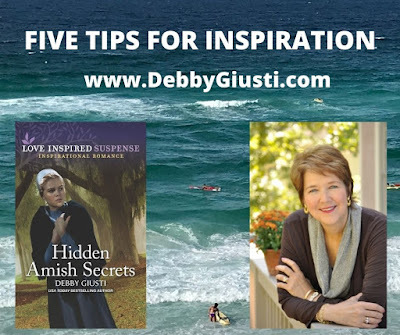 By Debby Giusti
By Debby Giusti If you’re like me, you’re never at a loss for story ideas. They seem as plentiful as the stars in the sky. The tough job is to focus on the glimmer of light worth following. Discerning the direction my work will take requires a knowledge of the various parts of a story that fit together into a completed manuscript, such as character, conflict, suspense, motivation, faith, romance.
Pulling all those pieces together, like a giant jig-saw puzzle, can be a challenge. When I’m tired or have worked too long, my vision for the story blurs. Sometimes the framework may be in place, but the middle remains a giant void unable to be filled. At other times, I’ve pulled in so much information that I’m unable to fit the parts into a unified whole.
Some may call that writer’s block. I think of it as being stalled, like a car that sputters and dies. When the driver repeatedly turns the key in the ignition, the engine floods and refuses to start.
“Let the motor rest,” my husband would caution, which applies to the overworked writer as well.
Whether you feel blocked or stalled, try one of the following five tips for inspiration. The ideas aren’t new. We’ve all used them from time to time, but they’re worth reviewing once again.

ENHANCE YOUR ENVIRONMENT. Do something nice for your writing space, whether it’s a private office, a cubbyhole in the corner of your bedroom, or an area in the kitchen you’ve claimed as your own. Engage your senses. A scented candle, soft music playing in the background, a favorite photo that recalls a special place or a relaxing trip, a plush throw covering your legs, a bouquet of flowers or a candy dish filled with chocolate can change the ordinary into something special that opens you to new possibilities.

EMBRACE NATURE. Most of us sit for hours each day at our computers. We need to give ourselves permission to spend time outdoors. A walk in the woods, a stop at a local pond to feed the ducks, a short break to build a snowman with the kids can be welcome diversions. Pausing to enjoy the beauty and bounty of God’s creation provides a breath of fresh air for our bodies and our minds.

EXERCISE. Turn that stroll through nature into a power walk, and you’ll free the endorphins, lower your blood pressure and come back refreshed and renewed. Thirty minutes at the gym, a Zumba class, or a bike ride -- even if it’s stationary -- sweeps away the cobwebs and restores energy and enthusiasm.

MAKE A DATE WITH YOURSELF. Remember the old saying, all work and no play makes Jack a dull boy? It also applies to Jill. Reserve a few hours in your weekly schedule for something you enjoy. Go shopping at the mall, have lunch with a friend or visit a local museum. You’ll come home eager to get back to work.

SET ASIDE TIME FOR PRAYER. I doubt Seekervillagers need to be reminded of the importance of making time for God, no matter how busy our days may be. Praising the Lord and focusing on the Divine elevates our thoughts, brings peace and nourishes our spirits and our souls. Often the answer to a story question pops into my mind when I’m in prayer as if the Lord is thanking me for spending time with Him. Focusing on something bigger than ourselves allows us to think beyond the finite and open ourselves to the possibilities that only God can reveal.

What tips can you offer to boost inspiration? Leave a comment, and let me know if you want to be entered in a drawing for a copy of HIDDEN AMISH SECRETS. The photos included in this blog are from our recent family beach vacation. In my opinion, there’s nothing like surf and sand to enhance creativity. What’s your Happy Place and how does it help to ease your stress and heighten your productivity?
Wishing you abundant blessings,
Debby Giusti
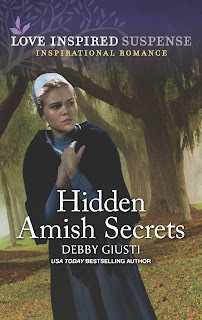 Her temporary Amish homecoming
Her temporary Amish homecoming could get her killed.
Julianne Graber left her Amish life behind after a family tragedy, but now she’s back to sell the family home— and someone’s dead set on getting rid of her. With her neighbor William Lavy by her side, Julianne must uncover dangerous secrets to make sense of the past and present. Can she find justice for her family—and a future with Will—before the killer hits his target?
Order on Amazon!
July 18, 2021
What Story Do You Need to Tell?
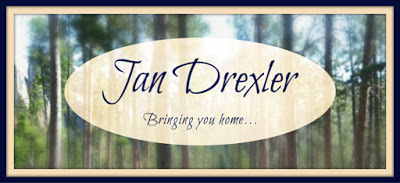
Nearly every day for the past sixteen months, I’ve taken Sam for a two-mile walk.
 Samwise the border collie
Samwise the border collieEarly morning is our time – before six o’clock is my sweet spot in the summer, and after seven in the winter. I try to walk when most of the rest of the neighborhood is still at home and off the roads.
(Blame Sam. He thinks his job is to control all the cars on our road, and all the deer he can see. That herding instinct is strong!)But even during this peaceful time, I’ll meet neighbors who are enjoying the same early morning routine as I am. And since we’re fairly new in our little community, some will strike up a conversation.
It usually goes like this:
Neighbor: “I’ve seen you walking your dog.”
Sam lays on the gravel road, waiting for a treat. Or a pat. Or anything.
Me: “He needs his road work every day.”
Neighbor: “You live down there?” (she points)
Me: “We bought Fred’s place and moved in a couple years ago.”
Everyone knows Fred.
Neighbor: “How is he doing?”
Me: “I haven’t heard, but I know he’s living in town now.”
Then comes the ultimate question…
Neighbor: “What do you and your husband do?”
Me: “My husband is retired and I’m an author.”
And then the response…
Neighbor: “Oh.” She looks down the road. “Well, I had better finish my walk.”
I don’t need to ask my neighbor any more questions. I know where she lives – she waves when I walk by with Sam in the morning as she has coffee on her front porch. I know she and her husband leave together every morning at 7:10. I know she likes to feed the deer.
I also know she is not a reader.
Because if she WAS a reader, her response would have been something like…
“I’ve always wanted to write a book, but I don’t know where to start.”
And the hopeful look. The questioning glance. After all, I’m an author. I must know the secret.
 Jack the corgi
Jack the corgiWell, yes, I do know the secret. If you’ve been reading the Seekerville blog for very long, you know the secret, too.
Writing a book is work. Hard work. Work that demands perseverance and determination.
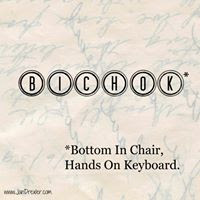
Sometimes, though, you meet that person who is challenged when you tell her that writing isn’t easy. She is enthusiastic about visiting the blogs I mention (including Seekerville,) and then follows through and actually looks up the blog.
I recently met a young woman on my walk who is house sitting for our neighbors (hi, Shana!) The next time she saw me she said she had stopped by to visit Seekerville.
That is the kind of person who may actually write a book and may actually finish it. And may actually have it published.
Because that kind of person won’t let anything stop her.
Her story will become her life. She’ll think about the next plot point while she’s cooking dinner. She’ll talk to her characters when no one else will listen to her. She’ll be surprised to see green grass in the yard in July because her story is set in the mountains in December.
She will stay up late into the night researching a quirky allergy her character has and rise early in the morning to write five hundred words before work.
Weather won’t stop her. A pandemic won’t stop her. A boat-load of zucchini in the garden will only delay her for a few hours. And a border collie puppy? No problem. The book will still be written.

Because when we have a story to tell, we have to tell it.
Is there a story you need to tell?
Whether you're a writer or a reader,whether your story is written down or it's still in your head,tell us a little bit about it in the comments,(100 words or less – practice your “elevator pitch”) and you’ll be entered to win a copy of “An Amish Christmas Kitchen.”
Because we all need a bit of Christmas in July!
(US only for paperback, e-copy wherever Amazon will send it.)
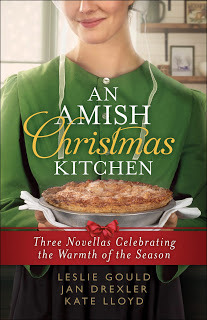 As the weather grows cold and the nights grow long, the cheer and warmth of the Christmas season is one thing all readers can find comfort in. This collection from bestselling Amish fiction novelists Leslie Gould, Jan Drexler, and Kate Lloyd finds the beating heart at the center of the holiday and offers three novellas that celebrate family, faith, and especially the sights and smells of a bustling holiday kitchen.
As the weather grows cold and the nights grow long, the cheer and warmth of the Christmas season is one thing all readers can find comfort in. This collection from bestselling Amish fiction novelists Leslie Gould, Jan Drexler, and Kate Lloyd finds the beating heart at the center of the holiday and offers three novellas that celebrate family, faith, and especially the sights and smells of a bustling holiday kitchen.Leslie Gould tells the story of how, in the wake of a heartbreaking loss, a young Amish woman finds unexpected comfort and hope in a yearly baking tradition surrounding the local Lancaster Christmas market. Jan Drexler offers a sweet tale of a shy Amish woman who decides to use her gift for sweets to woo a local Amish boy with her beloved Christmas cookies. And Kate Lloyd offers a heartwarming tale of a woman's unexpected discovery about the truth of her past, and the warm and welcoming Amish family table she finds herself invited to on Christmas.
July 17, 2021
Sunday Scripture & Prayer Requests
 The Sea of Galilee. Photo by D. Giusti.
The Sea of Galilee. Photo by D. Giusti.The apostles gathered together with Jesus
and reported all they had done and taught.
He said to them,
“Come away by yourselves to a deserted place and rest a while.”
People were coming and going in great numbers,
and they had no opportunity even to eat.
So they went off in the boat by themselves to a deserted place.
People saw them leaving and many came to know about it.
They hastened there on foot from all the towns
and arrived at the place before them.
When he disembarked and saw the vast crowd,
his heart was moved with pity for them,
for they were like sheep without a shepherd;
and he began to teach them many things.
Mark 6:30-34
The Seekerville bloggers are praying for YOU and for our entire blog community. If you have any special intentions that need additional prayer coverage, leave a request for prayer in the comment section below.
Please join us in praying for our country!God Bless the USA!We are so grateful for all of you—for your friendship and your support!
May the Lord bless you and keep you safe.
July 16, 2021
Weekend Edition


If you are not familiar with our giveaway rules, take a minute to read them here. It keeps us all happy! All winners should send their name, address, and phone number to claim prizes. Please send to Seekerville2@gmail.com. If the winner does not contact us within two weeks, another winner may be selected.
Monday: Freelance editor Anne Victory shared one thing that works for her to improve dialogue in writing.
Wednesday:
Thursday: Guest Lisa Jordan gave us some tips for overcoming all those distractions that keep us from writing. The winner of her new release, The Father He Deserves, is...Glynis! Congratulations!
Friday: Winnie reprised her post on literary transitions. Winners of the choice of any backlist book are Connie Porter Saunders and Vince.
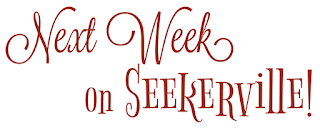
Monday: Jan Drexler will be talking about the stories we need to tell. Tell us about the story you need to tell and you'll be entered in a giveaway of a collection of Christmas novellas, An Amish Christmas Kitchen!
Wednesday: Debby Giusti will share insights into the writing life with a book giveaway! Friday:


How to Develop a Marketing and Promotion Plan as an Indie Author by Emma Lombard at Jane Friedman
The Basics of Plot for Writers by Cindy K. Sproles at The Write Conversation
Getting to the Heart of Why You Write What You Write by CS Lakin at Live Write Thrive
Why Should You Have to Promote Your Own Books? by Lisa Jordan at Learn How To Write A Novel
Your Bullet Journal, Your Rules at The Bullet Journal
Keep Calm and Keep Writing by Anna C. at The NaNoWriMo Blog
YouTube Channel for Writers by LA Sartor at An Indie Adventure
How to Use TikTok to Boost Your Book Sales by Brianna Bennett at Book Brush Blog
Do or Do Not. There is No Try: Clarifying What Your Characters Do by Janice Hardy at Fiction University
Summary of the Archetypal Character Arcs by KM Weiland at Helping Writers Become Authors
Characters & Setting: Making Them Interact by Jami Gold
Can Multitasking Harm the Brain? by Sue Coletta at Kill Zone Blog Persevere in Your Writing by Antony Barone Kolenc at ReadingIsMySuperPower
July 15, 2021
Getting From Here To There: Transitions

Hello Everyone, Winnie Griggs. I'm deep in the midst of working through copyedits so I hope you'll excuse me if I reprise a post I did here back in 2009. It was the first post I did for Seekerville, waaaay back before I became a regular blogger here.

When writing your story, you don’t want to include a detailed account of every action taken by every character in your story, nor do you always want to unfold the story linearly. Instead, a good writer will carefully select those scenes that are not only of interest but that also progress the plot in some way. Which means, by necessity, gaps will occur: gaps in time, in movement from one location to another, in point of view, in scene focus.
Transitions are those small but oh-so-important words or phrases that help guide your readers across these story gaps smoothly, while keeping them grounded in your story. There are several techniques or devices you can utilize to do this effectively.

The Direct Method or ‘Clean Break’- Simply tell the reader what change has taken place:
Early the following Monday, ... (Time change)
Once he reached the parking garage.... (Location change)
Mood - Use feelings, emotions, atmosphere to help convey the change:
As Stan pulled out of the company garage onto the congested highway, his hands clutched the wheel in a death grip and the cords in his neck tightened. It would take forever to get out of this tangle of traffic...
Once the city was behind him, however, the tension drained away and he breezed down the open road that led to his summer cabin. (Time and Location change)
The Five Senses - Use sound, sight, touch, taste and/or smell to bridge a story gap:

Margie hummed as she applied an extra spray of her favorite cologne, enjoying the light floral scent.
Andy’s nose started to twitch before Margie even entered the room. Why did she insist on using that nasty flowery perfume that always made him sneeze? (POV change)
Cassie heard a distant grumble of thunder off to the east as she closed her book. Maybe Allan was finally getting some of that rain he’d been hoping for.
Allan squinted through the windshield, looking for a safe place to pull over and wait out the violent storm. This wasn’t what he’d had in mind when he’d prayed for a ‘bit of rain’. (POV and location change)
An Event - Use an ongoing, recent or anticipated event to unify your scenes:
Hesitating for only a heartbeat, Lynda dropped the letter into the mail slot, determined to make the first move toward reconciliation. When a week passed without a response, however, she began to wonder if contacting her grandfather had been such a wise move after all. (Time change)
The near-crash triggered a memory, one she’d rather not dwell on. But there it was, full blown and swooshing in like an avalanche. That other crash had happened six years ago. Her mom was driving her and her friends to the airport... (Time change - flashback)
A Character (whether human or otherwise) - Use the mention of a character to guide us through a story shift:
Stacey pulled into her driveway on Friday afternoon, wondering how she’d let her sister talk her into dog-sitting their troublesome mutt for the weekend. She really wasn’t big into the whole pet scene.
But by Sunday evening,, Rufus had wormed his shaggy way right into her heart. (Time change)
An Object - Use an object or activity to move from one scene to another without jarring the reader:
Roger halted mid-sentence as a baseball came crashing through the window. Blast it all, he’d told Jimmy not to play ball in the yard.
He picked up the ball and marched to the door . Jimmy was going to pay to fix this, even if it meant he had to mow every yard in town to do it. (Change in scene focus)
The Environment- Use weather, terrain, scenery, seasons to depict change:

The autumn seemed long that year. Perhaps it was because she was so homesick for the Ozarks, where nature painted the mountainsides with magnificent blazes of color. Winter was easier, and by spring, the Texas gulf coast was beginning to feel, if not like home, at least less alien to her.
(Time change - extended period)
These are just a sampling. There are, of course, other ways to handle transitions. Just keep in mind - your main goal in using transitions is to keep your reader grounded and oriented in the who, what, where, and when of your story without their having to reread passages to figure it out.
Any thoughts on this post? Can you think of other ways to smoothly handle transitions? Leave a comment to be entered in a drawing for your choice of any book from my backlist.
July 14, 2021
Four Tips to Distancing Distractions to Get the Writing Done
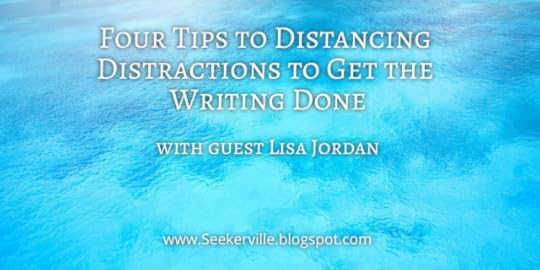
by Lisa Jordan
I glanced at my calendar to see what today’s to-do list entailed. I saw I had a blog post due for Seekerville. I’d been pondering a topic, but nothing concrete had come to mind. I decided to work on something else and then I’d go back to the blog post.
As I began working on my characters’ backstories for my new novel, I sneezed, reached for a tissue, and realized I had grabbed the last one. So I broke down the box, tossed it in the recycling and went to retrieve a new box. But along the way, my dog needed to go outside, so I took her to the door. On the way back to get the box of tissues, I noticed an empty dish in the living room. I grabbed it and took it to the kitchen. I set it in the sink and realized I had started to brew a cup of tea but never finished it. I carried the reheated tea back to my writing chair and started to sit when my dog scratched at the door to come back inside. I let her in, gave her a treat, then refilled her water dish. On the way back from the kitchen I glanced at the few dishes in the sink and decided to put them in the dishwasher. But first I needed to empty it. As I emptied the dishwasher, a puddle of water from an upturned bowl spilled on the floor. So I grabbed a towel and wiped it up. I tossed the towel in the bathroom hamper and noticed my hair brush still on the counter. I put it away, then decided to give the bathroom a quick wipe-down. I returned to the kitchen, finished the dishwasher, and reloaded the few dirty dishes. I gave the counters a quick wipe, then headed back to my computer. I sat, grabbed my cup of tea, and then sneezed again.
I had forgotten to grab the fresh box of tissues.
Okay, I admit not all of my days go like this. I can be pretty linear with my to-do list—I focus on one job until it’s done. However, there are days when my mental train of thought would be a good plot for Laura Numeroff’s If You Give… series. And the same goes when it’s time to write. If I’m not focused on that day’s particular goal, I’m as distracted as Dug in Up.
So how’s a writer to distance himself or herself from distractions when the writing needs to get done?
Many of us who frequent Seekerville on a regular basis have multitudes of distractions every day. We have spouses, families, careers, additional day jobs, church responsibilities, pets, community engagements, and extracurricular activities to manage.
I’m the kind of person who needs to plan out my day. If I don’t, then I don’t have the right focus to get things done. I also like a routine, and that goes for my writing as well. I don’t thrive in chaos. So when life throws curveballs, I do try to be flexible by rolling with flare-ups need to be dealt with that day.

When I’m on deadline, though, I need focused time to get my writing done so I can submit on time. So here are my four tips for distancing distractions:Plan. Like I said, I’m a planner. I use My Book Therapy’s My Brilliant Writing Planner to map out my story goals, my monthly appointments, events, and deadlines. Then I break down my monthly goals into weekly to-dos. Each day, I write out a to-do list of what needs to be done. I begin with the top three important tasks, then I add in less important things such as housework and laundry. Pray. Once I have an idea of what my week is going to be, I give it up to God and ask Him to order my time. I also ask for peace when I need to be flexible and not to stress when I don’t meet my writing goals for the day. Most of all, I want to stay centered in His will and use my time wisely. Pause. When it’s time to write, I pause to reflect on what I had written the day before and where I need to take my characters on their story adventures. Then I pause notifications on email, social media, texting, and phone calls. My phone is set up to allow my family to notify me if it’s important. Protect. In addition to being an author, I’m also the content manager for My Book Therapy’s online writing school, Novel Academy, so I don’t have all day to write. I’ve always worked an additional day job along with my writing, so I’ve had to protect my writing time. I try to write for two hours in the mornings when my brain is the freshest, then I can use the rest of the day for housework, appointments, and my day job. In order to get the words written, I need to protect that writing time. Sometimes that writing block does get interrupted, but I usually know in advance and can plan a separate writing block accordingly so I can still meet my word count.
These habits, while not perfect, have helped me to establish the necessary boundaries and writing routine in order to grow my career.
Your Turn: What do you do to distance distractions so you can get words on the page.
Mindy here. Lisa is giving away a copy of her new release, The Father He Deserves, to one lucky commenter (US mailing addresses only, please).

A determined dad. A wary mother.
Making amends is never easy… Injured in a kayaking accident, champion Evan Holland returns home to train rescue dogs. But his unexpected partner is the woman he left behind, Natalie Bishop. And she has a secret: a son Evan never knew he had. Now Evan must prove he can be a real father. But earning Natalie’s trust back will take hope, forgiveness—and risking everything on forever…

Heart, home, and faith have always been important to Lisa Jordan, so writing stories with those elements come naturally. Represented by Cynthia Ruchti of Books & Such Literary Management, Lisa is an award-winning author for Love Inspired, writing contemporary Christian romances that promise hope and happily ever after. Her latest book, The Father He Deserves, releases in July 2021. She is the content manager for Novel Academy, powered by My Book Therapy. Happily married to her own real-life hero for over thirty years, Lisa and her husband have two grown sons. When she isn’t writing, Lisa enjoys quality family time and being creative with words, photos, fibers, and papers. Learn more about her at lisajordanbooks.com.
July 13, 2021
BACK TO BASICS: Editing to Match the Story

This is the kind of post we can all use at times.
Few authors pen a masterpiece.
Fewer yet pen a masterpiece with no need of edits.
But when you're a new writer, the questions of what to edit, how to edit and when to edit are totally legitimate. Because you don't know what you don't know.
So let's start with my way (which I stole from Margaret Daley because it made sense to me and she's a prolific author of great stories... and she worked full time for decades while writing, and I like that kind of tenacity.)
1. Start your story. Write a few chapters. Describe your characters, get to know them, figure them out. Get to a grabs-your-attention spot now that you know your hero/heroine/protagonists and/or antagonists...
And begin there.
Yes, you heard me. Set aside those initial getting-to-know you chapters and drop your reader into the action. I know, it's not how you learned it in grammar school with Miss Brown, but trust me, guys and gals: Miss Brown won't be seeing this and you want that editor hooked, hooked, hooked. (That's if you're aiming for traditional publishing. If you're going indie, it is just as important to hook the reader the same way. If you don't, they can click out of your book in a heartbeat and be reading someone else's story... edits matter. Do not sell readers short... they don't like that and they will let you know it.)
So now you know where your story starts. You've gotten to know your characters. I'm a "Pantser", I do minimal prep for my story because I'd rather see it come alive daily, so I'm going to talk from that perspective, but friends, EDITS ARE EDITS.
They are needed.
Necessary.
And like chocolate ice cream, they are good for you because you need to learn/see/spot your own weaknesses.
2. Do you mess up timelines?
Do a chart that tells when important things take place for backstory or historical segment for easy reference. Keep it open as you work.
3. Do you overuse body parts? I saw a reader complaining about so many "He sucked a breath through grated teeth" or something like that.
Oft-used phrases become annoying in genre reading, mostly because they fit and they're easy.
But there is a problem with expression vs. simple expression and it's kind of like a really good dance... change the tempo, change the moves, change the angles, change the rhythm... and end on a good note!
FINAL DANCE SCENE FROM DIRTY DANCING!!!!!!!!! SWOON!
Those closing scenes, from black moment on, carried your emotions on a roller coaster ride of why nots and what ifs, and that's what great edits can do: They take your reader on that ride because that's what a great story does... (having just returned from an amusement park and roller coasters, I can attest to this!)
Expression vs. simple expression is often about timing. If you overuse either maneuver it sounds unnatural so I pick and choose where I'm going over-the-top with descriptors. And I often do that in dialogue because old ladies and young children often talk that way. Here's an example:
The sun set.
She didn't move. Didn't sigh. Didn't let one tear fall onto the over-washed farm shirt she'd been wearing all day.
It was over.
She knew it. Understood it. Had expected it, even, but now--
Reality had taken it's shot and struck out like Casey at the bat and she was left to pick up the pieces. Again.

Ruthy explanation: The setting of that scene makes the scant description come alive in the reader's mind. The starkness offers the picture without me using too many words.
Here's a different sunset scene:
Layered brilliance lit the western sky with shocking tones of gold, peach, orange, pink and red bordered by a thin splash of green. So thin she almost didn't see it.
The green hugged the horizon like a summer stole before the brighter tones overtook its subtle grace, shrouding it from view. Or maybe they didn't blanket the green. Maybe the power of their glorious salute to day's end sucked it up like a sponge seeking water. Stone-gray wisps filtered eastward, like sashes on a little girl's dress.
She didn't live for sunsets, but the woods surrounding her tiny home were thick enough to make them a rarity, so today's fiery show drew her in. She could live here if she made that choice. Here with the beauty, the opulence, the gorgeous home, the stately cliffs reaching down, down, down to the sandy beaches below. Here where her heart resided with his. With him. How she wished it were an option.
It wasn't. She knew that.
He didn't.
But as the warm glows of the sinking sun faded to obscure shadows of what had just been, her hopes sank with them. Not her resolve.
She knew her duty. Knew where she had to be.
Now she had to tell him. Tell Carrick. Make him understand.
He wouldn't. Couldn't. He believed that love conquered all and what he couldn't conquer with love, he'd conquer with might and he'd proven that, time and again but this time...
She stood and brushed grains of sand from the folds of chiffon.
This time she had to face the demons of the past alone and she'd do it because she'd either succeed--
Or die, trying.
And she was okay with either scenario.
Edits aren't just about changing words, slicing and dicing, and strengthening your story's arc. Sometimes they're about making the scene fit the story, the moment, the emotion. If you mess with the emotion of the moment, the scene or the story by giving the readers too much or not enough, it feels wrong, and that's what your edits need to avoid: You don't want your story to feel "wrong"...
I liken great storytelling to beats of music. When the music works for me it's because the tune and the lyrics and the harmony all feed the moment, making it come alive.
Zach Williams and Dolly Parton's duet on "There Was Jesus" is a perfect example of that... The fact that you can see their breath in the cold barn only adds to the pathos of the song.
There Was Jesus official video here...
As is her partnership with For King and Country on "God Only Knows" that added a layer of absolute pathos to a song that was already wonderful, lifting it to beyond wonderful status.
God Only Knows video with For King and Country and Dolly Parton here...
The two compilations have inspired a new series in my head, a beautiful series of second chances, rough times, bad choices and absolute deliverance, the kind only God can give because humans are so very narrow.
When you edit, bleed emotion. Choose words with care, not abandon. And don't be afraid to do it again and again because getting it right isn't just your responsibility... it's your duty to the beauty of story.

Somewhat bossy and always opinionated, award-winning and bestselling author Ruth Logan Herne has over 60 novels and novellas in print with over 2,000,000 in sales so she's pretty sure she's smart but equally sure that she doesn't know everything about publishing and/or writing so that's why she loves chatting it up with aspiring authors and industry pros over here in Seekerville. Friend Ruthy on Facebook, visit her website ruthloganherne.com and email her at loganherne@gmail.com (where yes, she actually reads and answers her own email.... happily!)
July 12, 2021
One Thing That Works For Me with guest Anne Victory: When Improving Dialogue
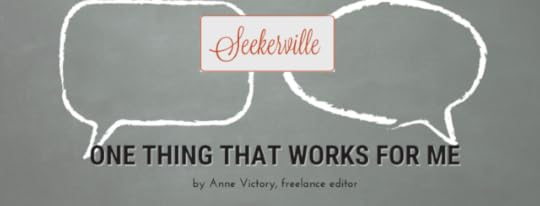
Happy Monday, dear Seeker villagers! My apologies for posting later than normal - you think you have everything covered and then someone emails wondering where today's Seekerville's post is. ARGH. lol.
Today's guest for this month's One Thing That Works For Me series is Anne Victory, a freelance editor who is here to share a technique that will help you improve your dialogue! Please welcome Anne with me!
Improve Your Dialogue with One Technique
Quick! Name the one part of your story that drives your plot forward, creates conflict, and paints a better, more accurate picture of your characters than narrative ever can.
If you guessed dialogue, you’re absolutely correct. Dialogue can show the type of person your character is, how they’re feeling at a particular moment, what their motivations are. It can set the mood of a scene, deliver information to the reader regarding events that occurred off the page, advance the plot. Done well, it is one of your best techniques for creating immersion for your readers.
But there are those two little words—done well. It’s no wonder that many agents and editors have gone on the record and said that dialogue is the first thing they look at when deciding if they want to represent an author or acquire a manuscript. Dialogue connects readers emotionally with the characters. While good dialogue can take a story to the next level, bad dialogue is like a spaghetti sauce stain on a white shirt; it’s painful, it’s obvious, and it ruins an otherwise great outfit.
There are a lot of aspects that go into writing dialogue, from the mechanical to the creative. But the most important thing after making sure it’s strengthening your characters, delivering information, or moving the plot is that it reads well. Good dialogue is an imitation of how people speak in the real world. It’s everyday speech stripped of the umms, errs, likes, you knows, and boring small talk. In my experience, the quickest, most accurate way to ensure that your dialogue doesn’t sound like some kid haltingly presenting a book report in front of the class is this: read your dialogue aloud.
Hearing your dialogue, not just reading it silently, will pinpoint those areas where you need an action beat to provide a pause; where you should have a contraction (or take out a contraction to provide emphasis); where you’d think, “Dear God, shut UP!” if it were a real person talking; where you want to roll your eyes; laugh out loud. Basically, hearing your dialogue as opposed to just reading it helps you decide if it rings true.
Another quick trick is to have your computer read your dialogue for you. That’s right—Microsoft Word has a text to speech function that you can add to your ribbon. It’s definitely not perfect (we’ve all heard the tinny computer voices and cringed) but it can help you put 100 percent of your concentration on how the dialogue sounds. Here’s a quick walk-through on how to set up that feature: MakeMicrosoft Office speak or read aloud - Office Watch (office-watch.com)
Alternatively, if you just cannot get past Microsoft James (or whichever voice you chose), you can do recordings of your own voice reading the dialogue. A great app for that is Loom.com, or you can just record yourself on your phone.
Whichever method you choose, the important thing is to actually hear your dialogue, to listen to how it ebbs and flows and if, at the end of the day, it engages you and immerses you in the scene or if it’s awkward and off-putting. Dialogue will make up anywhere from 30 percent to 50 percent of your manuscript—you owe it to your readers and your story to make sure it’s pulling its weight. Dialogue is meant to be spoken, after all, and heard. It’s no surprise that listening to it is one thing that will help you ensure yours sparkles.
~*~*~*~*~

Freelance editor Anne Victory specializes in romance, urban fantasy, and cozy mysteries. Her boutique editing business, Victory Editing, offers a full range of services from developmental editing to Oops Detection®, formatting, and a NetGalley co-op for e-ARC distribution. She provides clients, many of whom are NYT and USA Today best sellers, with a full editing team while giving them the convenience of a single point of contact. And, finally, she’s the chief cook and bottle washer for her husband, a boisterous spaniel who loves to wear dresses, two cats, and two birds.
For more tips on writing and freelancing as well as classes and other resources, be sure to check out Victory Academy.
Authors, what questions do you have for Anne?
Where do you struggle most with dialogue?
July 10, 2021
Sunday Scripture & Prayer Request
 The Exortation to the Apostles, James Tissot, 1886-1894,
The Exortation to the Apostles, James Tissot, 1886-1894,
Brooklyn Museum, NY. [PD-US]
Jesus summoned the Twelve and began to send them out two by two
and gave them authority over unclean spirits.
He instructed them to take nothing for the journey
but a walking stick—
no food, no sack, no money in their belts.
They were, however, to wear sandals
but not a second tunic.
He said to them,
“Wherever you enter a house, stay there until you leave.
Whatever place does not welcome you or listen to you,
leave there and shake the dust off your feet
in testimony against them.”
So they went off and preached repentance.
The Twelve drove out many demons,
and they anointed with oil many who were sick and cured them.
Mark 6:7-13
The Seekerville bloggers are praying for YOU and for our entire blog community. If you have any special intentions that need additional prayer coverage, leave a request for prayer in the comment section below.
Please join us in praying for our country!God Bless the USA!We are so grateful for all of you—for your friendship and your support!
May the Lord bless you and keep you safe.



